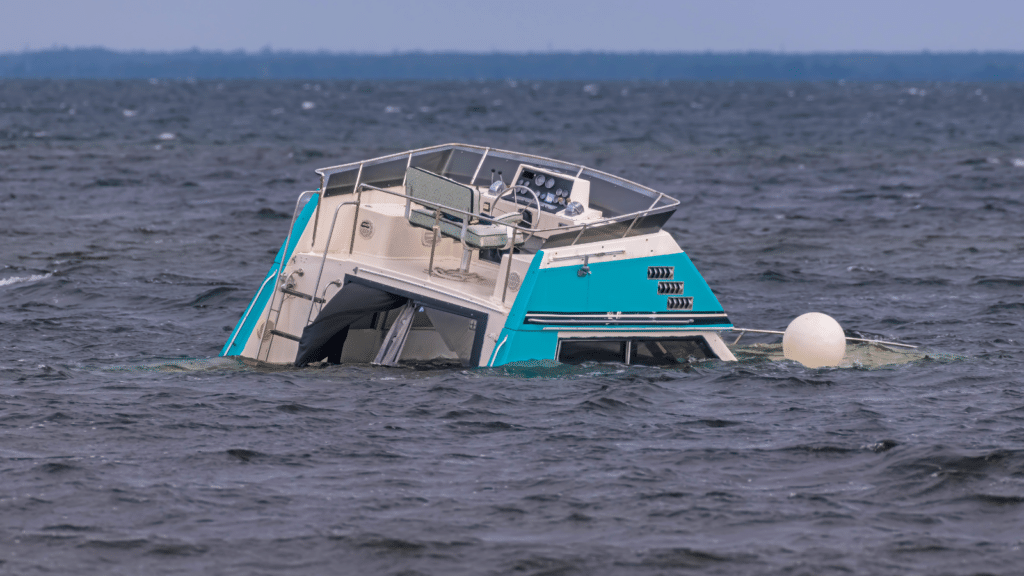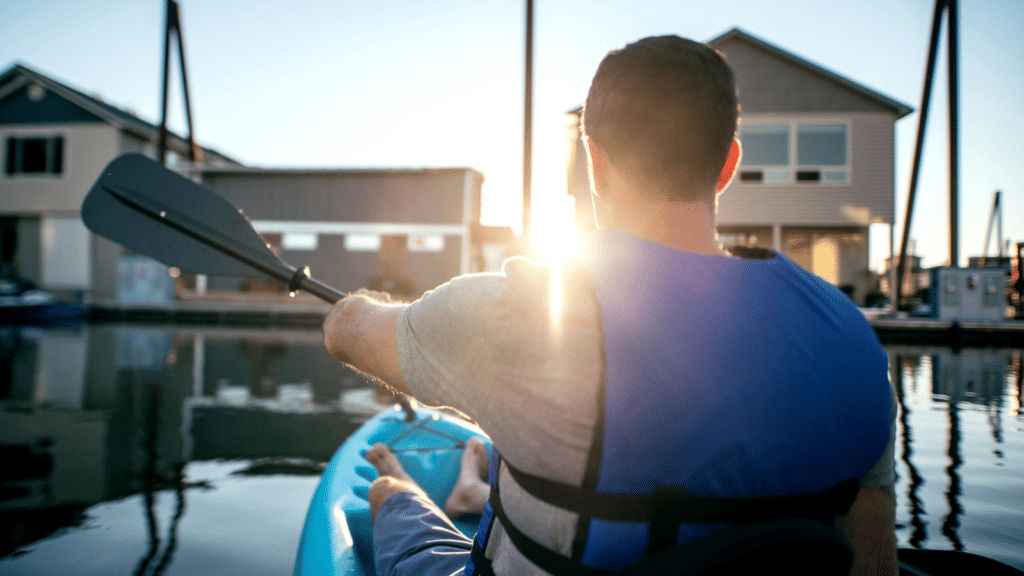Louisiana is a boat owner’s paradise. The nickname it is better known as is The Sportsman’s Paradise. Residents and visitors alike enjoy the outdoor water sports in the state, including canoeing, water skiing, jet skiing, and boating.
While Louisiana is a great place for water activities, accidents do happen. A number of fatal boating accidents in the state serve as a reminder of the potential perils associated with recreational boating.
According to the Coast Guard (USCG), there were 4,040 recreational boating accidents in 2022. This involved 636 deaths, 2,222 injuries, and approximately $63 million in damage to property.
Furthermore, in 2022, 103 Louisiana boat accidents were reported, which averages roughly 8.5 boat accidents a month.
– While fatalities don’t always happen with boating accidents, they do occur. 75% of fatal boating accident victims drowned. Of those drowning victims, 85% were not wearing a life jacket.
– Alcohol use is the leading known contributing factor in fatal boating accidents; where the primary cause was known, it was listed as the leading factor in 16% of deaths.
– Collisions (with vessels, objects, and groundings) were the most frequent first event in accidents, attributing to 55% of accidents, 21% of deaths, and 53% of injuries.

USCG’s statistics found that 74% of boating fatalities occurred on vessels where the operator had not received boating safety instruction. In the state of Louisiana, boat safety classes are mandatory for anyone born after January 1, 1984, but it’s recommended for everyone. Louisiana Wildlife & Fisheries offers online courses year-round.

A boating accident can lead to a wide range of injuries. Here are some of the most common ones we have defended.
When a person is submerged and deprived of oxygen, every second counts. Near-drowning incidents, where the person is rescued and resuscitated, can also leave lasting physical and psychological scars. It’s not just the lack of oxygen that causes harm; inhaling water can cause damage to the lungs, leading to complications.
The impact of collisions or sudden jolts on a boat can result in injuries to the head, neck, and spine. Whiplash, commonly associated with car accidents, can also occur on boats, especially during rapid stops or turns. Such injuries can be debilitating, often requiring extensive medical treatment and long recovery periods. In worst-case scenarios, damage to the spine can lead to paralysis, forever changing a person’s life.
Waterways can be unpredictable. Combine that with the hard surfaces of boats, and that can easily lead to broken bones and fractures. A fall on a slippery deck, a collision, or even a sudden stop can send passengers flying. Depending on the severity, broken bones may require surgery, casts, and extended periods of physical therapy.
Sharp edges, exposed machinery, and flying debris during a boat accident can result in deep cuts or abrasions. Besides the immediate pain and blood loss, lacerations expose the victim to potential infections, especially in water environments.
Boats, with their combination of fuel, electrical systems, and proximity to water, present unique risks for burns and electrocutions. Fuel leaks can lead to fires, while faulty wiring or equipment can result in electric shocks. Burns can be particularly traumatic, leading to long-term scarring and requiring specialized treatments.
While any injury to the head is concerning, traumatic brain injuries (TBIs) are particularly alarming. These can result from a sudden blow to the head, such as hitting an object during a boat collision.
For over 30 years, Craig and his team have helped thousands of personal injury victims pursue compensation for damages owed to them. We are dedicated to providing competent, compassionate legal support and giving you and your family the personalized attention you deserve. Our lawyers are committed to fighting for your rights and helping you recover maximum compensation for your injuries and losses. Give us a call today. Our conversations are always free, and you don’t pay anything unless we win your case!

There are a few types of boating accident claims that are more than familiar to attorneys. Below are a few of those.
Negligence is one of the most common types of claims made in boating accidents and is applied whenever the operator of the boat is deemed to have operated negligently and that this negligence resulted in the accident and your subsequent injuries. Common examples of negligence are:
The behavior of a boat operator will be deemed to fall under the category of’reckless operation’ in the event that the behavior has violated the official Rules of the Road, set out by the state and the LDWF. This includes violating any preset right of way or passing standards, using excessive speed, wake zones, or boating in specific types of dangerous weather or around dive zones.
If the operator of the boat is found to have violated these maritime laws, resulting in an accident, they may be found liable for any property damage and injuries.
The nature of jet skis means that riders can suffer from far more serious injuries or death. These personal watercraft tend to have the rider exposed, with minimal protection, and this means that the consequences can be devastating.
Jet ski accidents typically fall into one of two categories:
Many people buy recreational boats for the sole purpose of spending the day on the water drinking and having a good time. Unfortunately, just like a drunk driver on the road puts others at risk, this can put everyone on the waterway at risk.
Operating a boat while under the influence of alcohol is a serious offense and is often the cause of accidents. Louisiana law states that a DUI may be issued to any person operating a boat who:
In addition, the owner of the boat may be liable for injuries and damage that occur as a result if they are found to have knowingly allowed the boat to be operated by someone they knew was under the influence.
How long do I have to file a claim for my Louisiana boating accident?
Louisiana has a quick one-year statute of limitations for boating accident lawsuits. If you let the deadline pass, you’ll lose the right to recover compensation for your claim. It’s imperative to reach out to an experienced boat injury lawyer with proven results after a boat accident.
What is a "boat accident"?
A boating accident may occur in many ways, but the most common are capsizing, crew overboard, collision, fire, sinking, flooding, explosion, and disappearances.
What are "personal watercraft"?
The United States Coast Guard classifies a personal watercraft (PWC) as an inboard boat. It is a vessel that utilizes an inboard motor to power a water jet pump as the main source of propulsion. It is designed to be operated by a person who is sitting, standing, or kneeling on the vessel. As an inboard boat, personal watercraft vessels are required to follow the same rules and requirements of other powerboats, in addition to any specific rules applicable to personal watercraft.
Do I have to report a boating accident?
Causality or accident reports must be submitted to the reporting authority if any of the following occurs:
Does Maritime Law only apply to large commercial ships?
No. Maritime law applies to most types of vessels. A vessel may be a large commercial cargo ship, a cruise ship, a fishing boat, a Jet Ski, a hovercraft, or another type of personal watercraft.
Like most injury cases, the value of your claim depends on several factors. No boat accident cases are the same. Even if two people are injured in the same accident, both will have different values of their claims. Things that play into your claim are:


At Craig A. Davis, APLC, we serve the following areas. Lafayette, Youngsville, Broussard, Scott, New Iberia, Abbeville, Breaux Bridge, Carencro, Duson, Crowley, Rayne, Maurice, Erath, Jennings, Lake Charles, Grand Coteau, Houma, Delcambre, Iota, Jeanerette, Meaux, Sulphur, Opelousas.
Disclaimer: The legal information presented at this site should not be construed to be formal legal advice, nor the formation of a lawyer or attorney client relationship. Any results set forth herein are based upon the facts of that particular case and do not represent a promise or guarantee. Please contact a Personal Injury Attorney for a consultation on your particular matter. Please read our Privacy Policy